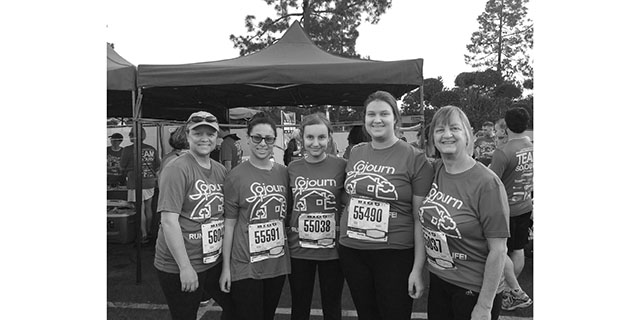
I was driving with my mom along the 10 West freeway and saw a woman being beaten on the side of the road. Because we were in the fast lane and the man and the woman were on the right hand shoulder of the freeway, we weren’t able to see if the woman needed help. Instead we pulled off on our side and tried to call out to her. Unable to hear her amid the noise and traffic, I called 911. Just then the man and woman got back in their car and pulled back into the bumper to bumper traffic. We got back in our car and managed to fall in behind them.
After the patrol car arrived and had the man step out of the vehicle, the officers interviewed us and wrote down our contact information. With that my mom and I merged back into the mass of cars and along with the rest of the city went back to our day. I was left wondering what would happen to the woman and why, with hundreds of cars passing by her every second, we were the only ones to report this abuse? It was almost as if a seemingly private series of events was unfolding, but instead it was taking place in a very public place with hundreds of witnesses. I never found out what happened or if the woman was able to find safety.
Unfortunately, this type of abuse is common. Every nine seconds a woman is assaulted or beaten in the United States, according to the Bureau of Justice Statistics Report on Violence Against Women.
I volunteer with the Sojourn organization, which operates a battered women’s shelter in the state of California. Sojourn provides both crisis and long term shelter for survivors of domestic violence. Volunteers staff a 24-hour hotline, offer children’s programs, support groups, court advocacy, prevention and education programs.
Although there has been great work on behalf of Sojourn and other shelters for women, domestic violence continues to be all too common and overlooked. It is constantly portrayed in popular culture as acceptable. The Nicholas Sparks movie “Safe Haven” portrays domestic violence as romantic. The demeaning lyrics in Eminem’s song “Kim” downplay the violence towards his ex-wife, Kim Mathers. Movies and songs with underlying violence against women have become mainstream, making the issue seem generally accepted. It’s less easy to accept when you think that a battered woman could be your friend, neighbor, sister, mother or favorite celebrity.
The incident I saw with my mom on the freeway was only one of millions. My hope is to eliminate the stigma surrounding domestic violence, encourage people and institutions to speak up when it happens and make violence against women totally unacceptable in our society.







